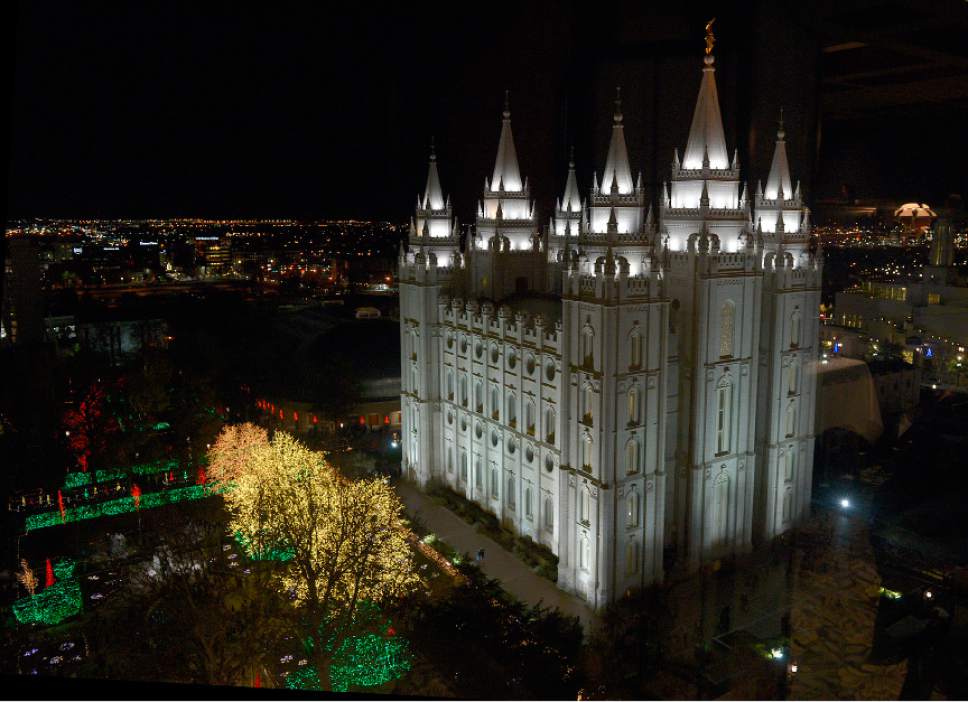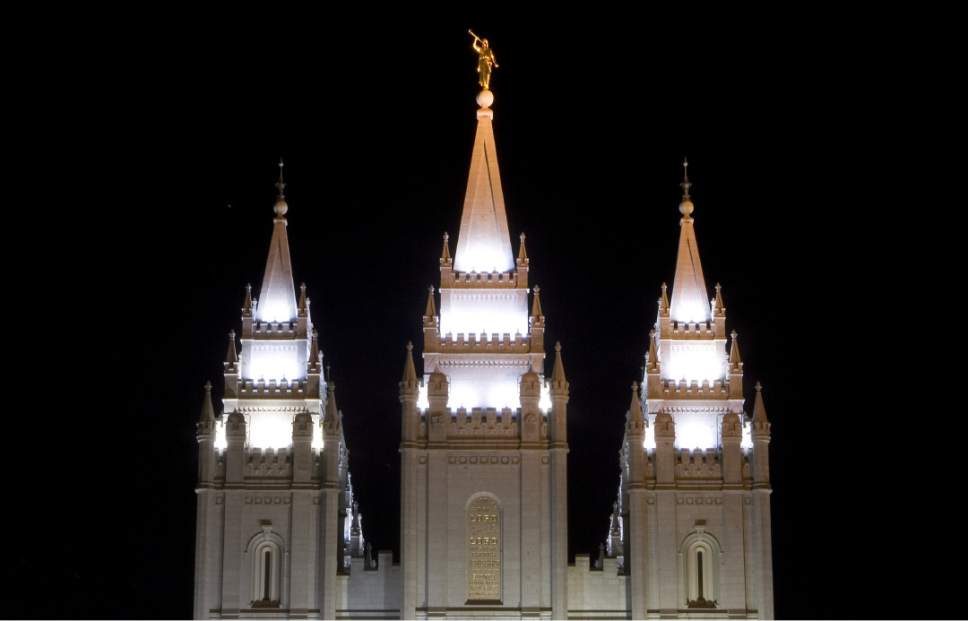This is an archived article that was published on sltrib.com in 2017, and information in the article may be outdated. It is provided only for personal research purposes and may not be reprinted.
It's February, and I'm in my sister's living room while she tinkers with her laptop, finalizing my divorce. I wonder, when she submits the papers, if my mind will release a deluge of balloons. Will confetti bombs rain glitter over my psyche? Or will I regret it immediately? Some people did, I'd heard. Some people hooked back up with their exes within a year. That won't be me, I think to myself.
"I think I submitted them," Misha says, "but it should have given me a case number."
It is done. We think so, anyway. Where is the confetti? The filer's remorse? I feel no regret but also no relief. The back of my throat constricts. There is fear. Everything I thought I knew is garbage. My marriage — one expected to prevail beyond our earthly lives — is over after 15 years. As is my 36-year relationship with Mormonism.
When my ex and I agreed to split, we decided to also step away from The Church of Jesus Christ of Latter-day Saints. To stop taking the children to our meetinghouse on Sundays and to midweek activities. Mostly, we feared that exposing our son and daughter to the ubiquitous "eternal families" rhetoric would confuse and hurt them as their parents separated. So we've stopped attending.
My split from the church happened gradually over several years. It happened as I watched the church's leaders mistreat its gay congregants with hurtful policies and twisted diction, and witnessed Kate Kelly, founder of the Ordain Women movement, be excommunicated and ostracized by her member neighbors and friends. Will I, in my hunt for knowledge and truth, be shunned by my church family? I don't know. I have no compass for life outside the church.
"I'm still not sure it worked," Misha says of the divorce filing. "I'll call Jamie. Maybe she knows." She phones a paralegal at her office.
Misha is a member of the church. My whole family is. My three sisters and brother. My parents and grandmother. Telling them about leaving Mormonism may be harder than dropping the news about my divorce. I decide to put it off. They'll figure it out when I start wearing tank tops and shorts that cut above the knee, clothing that was off-limits when I wore temple undergarments. These undergarments represented the covenants I'd made both to God and to my husband. But now that my marriage was over, the contracts dissolved, the garments seemed superfluous.
After 15 years of marriage, my ex-to-be and I have entwined ourselves in a codependent relationship. Effective communication has long been replaced with side eye and reticence. We dance around land mine topics and dodge most forms of intimacy. We hung on for so long because of recurrent church teachings: Our marital problems can be solved if we pray more, love more and serve more. The subtext: If that didn't work, we were doing it wrong.
I explain this to a friend of mine, John, who left his chronically depressed wife after 17 years. He, too, had been tangled in a codependent relationship and developed compassion fatigue, a condition common in nurses and caretakers for the elderly. He, too, felt pressured by his Mormon leaders and friends to stay in a toxic marriage much longer than he should have. He, too, felt that leaving both the church and his marriage might equate to social suicide. He tells me about being called to meet with the bishop of his Salt Lake City area ward a few days after asking for a divorce. The religious leader admonished John, saying he'd made promises to his wife and that John was breaking a sacred covenant with God by abandoning her now.
I shake my head. And what about the promises she made to him?
I tell John that being a Mormon in a hopeless marriage is kind of like drowning. You're treading water, getting exhausted and losing hope. But on the horizon is a boat (divorce). You and your spouse can climb into the boat and be saved. However, the church is like a guy standing on the water with a gun to your head, forcing you both to drown.
"Yes. I like that," he says. "I got out, because I decided it would be better for my kids to have a divorced dad rather than a dead dad."
We contemplate the similarities between being married to the wrong person and being baptized into the wrong religion.
I have pulled myself into the boat. I am gasping on the deck and regaining my strength — finding my breath. I'm pleasantly surprised that I won't have to go it alone. My ward (congregation) family, despite my inactivity, reaches out, demonstrating those Christlike behaviors the faith advertises. Several neighbors stop by to commiserate and to offer baby-sitting services and meals. Some bring cookies. Another takes me to an Elton John concert.
A few weeks after my ex moves out, I find a box of a dozen wrapped presents on my doorstep. There is a heartfelt note indicating that women in the neighborhood pooled their resources to provide treats, toys, gift cards and games for the kids and me — to make life a little less painful during the transition. This is the part of the religion I love: the close-knit community, how people serve one another. I wonder if this is sustainable. Will they love me if I never return to the fold? I don't like the imbalance of responsibility in that question. No doubt I am equally accountable to my Mormon friends and neighbors to keep our relationships alive.
But I am not willing to return to the faith right now. I will therefore be dubbed a "lost lamb" by some Mormons — my family, too, when they discover this — but I accept the nomenclature. I am lost.
I don't know this terrain, but I'm exploring new territory. I'm finding my way.





